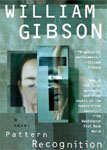
 The SFFaudio Podcast #088 – Scott and Jesse talk about audiobooks, the recent arrivals and the new releases.
The SFFaudio Podcast #088 – Scott and Jesse talk about audiobooks, the recent arrivals and the new releases.
Talked about on today’s show:
Why was Scott gone?, Scott fought off a zombie apocalypse, an angry letter to Santa, Last Call by Tim Powers, Subterranean Press, On Stranger Tides, Bronson Pinchot, “gritty magic realism”, Scott likes lists, top 10 best horror novels, Ghost Story, The Stand, divinationary tarot cards, The Fisher King, “blended weirdness”, StarStruck, The Audio Comics Company, Starstruck’s Wikipedia entry, William Dufris, Simon Vance, Portland (Maine), Simon Vance’s YouTube, Infinivox, Starship Vectors, Stephen Baxter, Elizabeth Bear, Sarah Monette, Charles Coleman Findlay, Gwenyth Jones, Nancy Kress, Robert Reed, “spacey Science Fiction is very refreshing”, BoingBoing’s “The Beginning Of The End Of A Trend” post – is the death of Paranormal Romance approaching?, Brilliance Audio, The God Engines by John Scalzi, The Geek’s Guide To The Galaxy podcast, The Android’s Dream (as read by Wil Wheaton), Audible.com, Debt Of Bones by Terry Goodkind, the Legends anthology, Frank Muller, The Hedge Knight by George R.R. Martin, The Hedge Knight II, Legends II, Dreamsongs, Pump Six And Other Stories by Paulo Bacigalupi, The Fluted Girl, biopunk, Lord Of The Changing Winds: The Griffin Mage Book One by Rachel Neumeier, epic fantasy, Griffins, hard-boiled YA?, noir YA?, The Stainless Steel Rat Wants You by Harry Harrison, Gregg Margarite, the Stainless Steel rat is wry and slick and rascally, well written candy, West Of Eden, prehistorical Science Fiction, alternate history, Catalyst by Anne McCaffrey and Elizabeth Ann Scarborough, barking cats?, Scott is a cat person, Parasite Rex by Carl Zimmer, “Mood-altering cat parasites make women friendly and men into jerks”, fantasy, The Runelords: Book Four: The Lair Of Bones by David Farland, Shadowheart by Tad Williams, Dick Hill, The Habitation Of The Blessed by Catherynne M. Valente, Prester John, immortality, She: Who Must Be Obeyed by H. Rider Haggard, “the literal tree of knowledge”, A Dirge For Prester John, Patient Zero by Jonathan Maberry, “the fate of the world is always hanging in the balance” ,The Walking Dead TV vs. The Walking Dead comic, “a zombie movie that never ends”, Robert Kirkman‘s plan, reading contest, Robert Kirkman’s Invincible, upcoming readalongs: Gulliver’s Travels and Oath Of Fealty, Alas, Babylon by Pat Frank, On The Beach by Nevil Shute, Wil Patton, Neon Rain by James Lee Burke, Heart Of Darkness, Sherlock Holmes vs. Jack The Ripper, Time For The Stars, Will Patton, Richard Matheson, Somewhere In Time, Ross Macdonald, The New Adventures Of Mike Hammer, Stacey Keach, Max Allan Collins, SS-GB by Len Deighton, Fatherland, Eric S. Rabkin, “I don’t want to say I like Nazis”.
Posted by Jesse Willis









 Way Station
Way Station